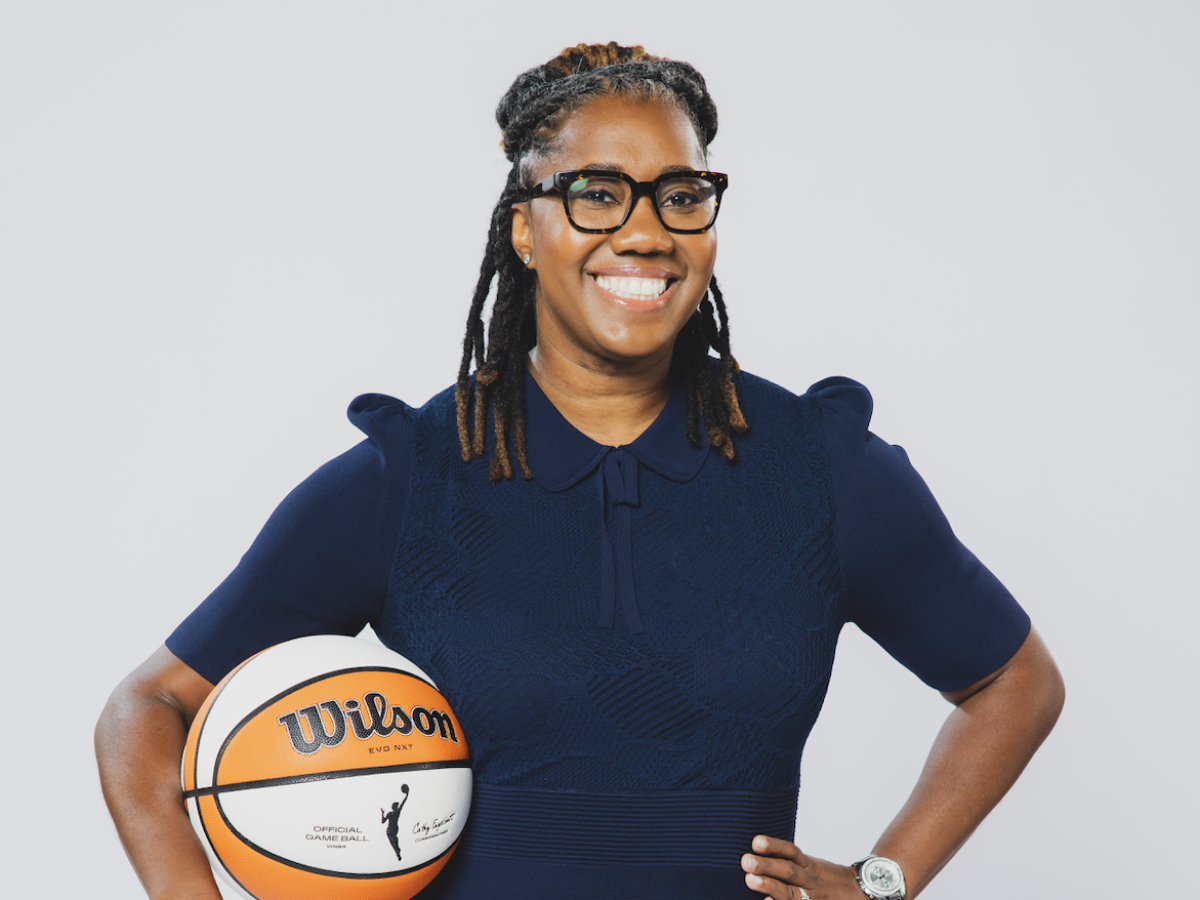
In the world of professional sports, representation matters.
For the New York Liberty — a WNBA team with a front office composed primarily of Black women — this representation is more than just a visual statement, it’s a testament to the power and impact of Black women in leadership roles, especially in a league dominated by Black women athletes. As the Liberty soars to new heights both on and off the court, their success is driven by a vision that embraces inclusivity, diversity, and the empowerment of women, especially Black women.
Keia Clarke, CEO of the New York Liberty, has been a key player in this transformation. Her journey, from her early days in the sports industry to becoming one of the few Black women to hold a CEO position in professional sports, has been nothing short of inspiring.
In an interview with ESSENCE, Clarke shares how her experiences shaped her leadership style and informed the Liberty’s success. “From being a former athlete to entering the sports space, first through a sports museum, then a sports magazine, and ultimately the league office, gave me a vantage point where I truly had a chance to understand many levels and many verticals within the industry.”

As a result, her philosophy is rooted in fostering a work environment that celebrates diversity and encourages people to thrive as their authentic selves. She continues, “I always want to be authentic and really intentional about people showing up to work as themselves,” Clarke explains.
The Liberty’s rise in popularity, particularly this season, is not just a result of exceptional performance on the court but also the intentional strategies implemented behind the scenes. Clarke attributes this success to the hard work and dedication of many people, both past and present, who have nurtured the league over the years. “It’s been a work in progress,” she says. “There are many people who spent a lot of time and attention really nurturing and working to cultivate and grow this league and to put the players first.”
This focus on elevating the players has been a cornerstone of the WNBA’s growth, and Clarke is particularly proud of how Black women have led the charge in shaping the league’s identity. “Black women are the purveyors of culture,” she emphasized, noting how the WNBA’s 80% Black athlete demographic reflects a league that thrives on the influence of Black women both on and off the court. “What we wear, what music we listen to, beauty, and what is cool is often led by Black women,” Clarke added. In this way, the Liberty, under Clarke’s leadership, mirrors the influence and leadership of Black women in broader culture.
The Liberty have become not just a basketball team, but a cultural force in New York City, and their home at Barclays Center has cemented their presence in one of the most diverse cities in the world. This move to Brooklyn was pivotal, transforming the fan experience and aligning the Liberty’s brand with the city’s rich cultural landscape. Clarke reflected on this shift, saying, “The vibe in the arena has really just metamorphosed into reading exactly that way… We are representing something that actually transcends basketball.”
As the Liberty chase their first WNBA championship, Clarke’s focus is on sustainability—ensuring that the momentum the team has built is not just a moment, but a lasting legacy. “My entire focus right now is sustainability and ensuring that this isn’t just a moment—that this momentum becomes the norm,” Clarke explained. Part of that strategy includes innovative partnerships, like the recent deals with Barclays and Bumble, as well as a direct-to-consumer streaming service, Liberty Live, which allows fans to engage with the team in new ways.
But perhaps the most important aspect of the Liberty’s success is the impact they’re having on the next generation of athletes and fans. Clarke believes that the Liberty’s presence and leadership, particularly in New York City, create a ripple effect that extends far beyond the court. “Our community efforts are very, very specifically centered around encouraging young women and girls to play basketball and empowering women and girls through various initiatives for self-esteem and character building,” Clarke shared.
For Clarke, the opportunity to lead the New York Liberty as a Black woman is not lost on her. She acknowledges the challenges that come with breaking barriers, but she also sees it as a responsibility to create space for others. “Leadership development and diverse hiring is a two-way street,” Clarke says. “As much as it’s the organization’s responsibility… I would encourage young women, especially Black women, to prepare yourself. To be ready for that moment… and not wait until you have every credential.” Her advice speaks to the importance of self-empowerment and being unafraid to take risks in industries where representation remains limited.







As the Liberty continue their push toward WNBA dominance, the significance of Black women leading both on and off the court cannot be overstated. From Clarke’s innovative leadership to the players’ undeniable talent, the New York Liberty are a shining example of what happens when diversity is prioritized at every level of an organization. And in a league where Black women athletes are the majority, it’s imperative that their voices are not only heard but that they are empowered to lead.
In a world where sports often set the tone for culture, the New York Liberty are proving that representation at the top matters just as much as it does on the court. Clarke’s leadership is a blueprint for what the future of professional sports can look like—one where Black women aren’t just part of the conversation but are leading it.






